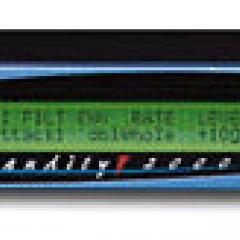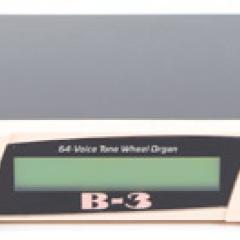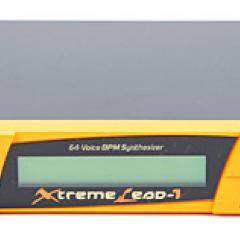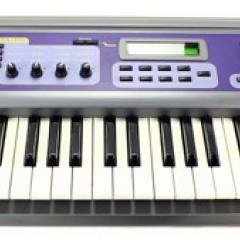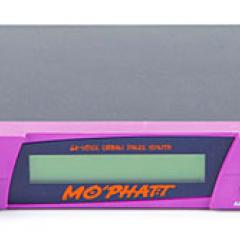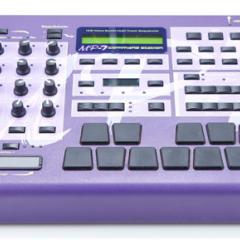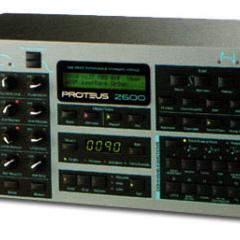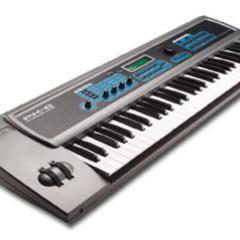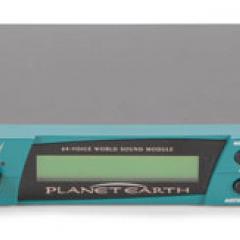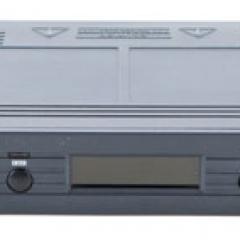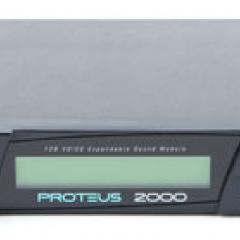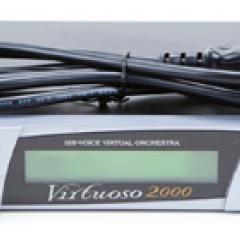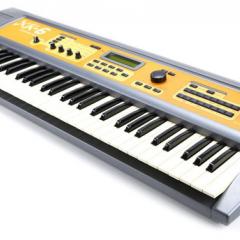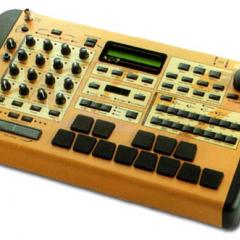E-mu Proteus 1000

The Proteus 1000 is a slimmer and more affordable version of the Proteus 2000 rack module (and that also includes the Proteus 2500 too). Polyphony is cut down from 128 to 64 voices. It offers the same 32 MB "Composer" soundset as found in the Proteus 2000 and 2500. But the Proteus 1000 has just one additional soundset expansion slot where the other Proteus's have four slots. So total memory can only be expanded to 64 MB, and you can only choose one of the eleven Soundsets in E-mu's current library of genre based sound modules, desktop groove machines and keyboards.
The Proteus 1000 is aimed at bringing you the Proteus sounds in an affordable module. So its four assignable real-time control knobs are adequate, but nothing compared to the 16 knobs on the 2500! Cost is also reduced by offering just a stereo output and no digital output. The MIDI processor is the same as in the Proteus 2000, but is only 16-part multitimbral instead of 32-part. The Proteus 1000 makes a great entry-level sound module as it provides the full gamut of general synthesizer sounds and is quite affordable. Serious musicians would prefer the more flexible Proteus 2500 (or even the Proteus 2000) to the 1000 simply for the multiple outputs and increased polyphony and sound expansion options.
Current E-mu sound modules ship with one 32 MB sound-set each, but are expandable up to 128 MB via three additional slots for 32 MB expansion cards. These cards include (ranging from $249 to $395):
- 9061: Siedlaczek Orchestra 32 MB ROM.
- 9062: Pure Phatt 32 MB ROM - standard in Mo’Phatt, MP-7 and MK-6.
- 9063: Beat Garden 32 MB ROM - standard in Orbit 3.
- 9082: Protozoa 16 MB ROM - standard in Proteus 1, 2, 3.
- 9083: Definitive B-3 32 MB ROM - standard in B-3.
- 9084: Techno Synth Construction Yard 32 MB ROM - standard in Orbit 3.
- 9085: Orchestral Session Vol. 1 32 MB ROM - standard in Virtuoso 2000.
- 9086: Orchestral Session Vol. 2 32 MB ROM - standard in Virtuoso 2000.
- 9087: World Expedition 32 MB ROM - standard in Planet Earth.
- 9088: Sounds of the ZR featuring the Perfect Piano 32 MB ROM - standard in Ensoniq Halo.
- 9089: X-Lead 32 MB ROM - standard in Xtreme Lead-1, XL-7 and XK-6.
With these expansion options, you could buy a PK-6, then add the sounds of the Orbit 3, XK-6, and the MP-7... or any other combinations you may want. If you like desktop synths, you can start with an MP-7 or XL-7, and then add these same expansion card options to add Proteus, Orchestral, or the new Halo sounds to them. E-mu/Ensoniq's interchangeable sound cards and a variety of keyboard/sound-module options means that there's a model out there for everybody now.
Demos & Media
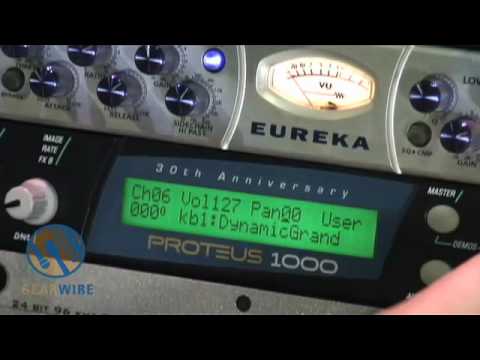
Specifications
Websites of Interest
Resources
Images from E-mu Home Page.
